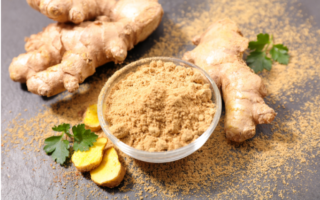
These are some trying times that we are currently living in. Each day, we are challenged by the unknown, which can affect us mentally and physically. When this happens, our body reaches a vulnerable state. This is a state of reduced immune function that makes us more susceptible to illness, allergens, and other environmental pathogens. Many herbal remedies can aid in boosting immunity as well as foods that you may already enjoy.
In this article, I will explain the underlying causes of reduced immunity caused by stress. I will also be discussing 5 common foods that you can incorporate in your diet to help support stress and improve immune function.
About immune function

Our body is comprised of a series of systems and networks that influence how we react to germs and pathogens, including harmful bacteria and viruses that attempt to invade our bodies. The immune system is in charge of fighting off these invaders that can harm the body. It is an essential component of the human body and is what keeps us healthy.
How does stress influence immune response?

Stress is the body’s natural fight-or-flight response that reacts to our environment. It is what has kept us alive for generations and is necessary for survival. As we become less exposed to environmental threats, our body can see everyday situations as a stressful event. Common influencers of stress are:
- Lack of sleep
- Heavy workloads
- poor diet
- lack of activity
- Environmental pollutants i.e. smog and toxic solvents
- Challenging situations
When we are constantly exposed to stress, the body has to consistently be in a hyper-vigilant state to keep us going, despite the body’s need for rest. This is known as chronic stress. Eventually, the body burns out, and general immunity is reduced. With reduced immunity, our body is vulnerable to infections and illnesses. Allergies and food sensitivities also become more prevalent when we are exposed to prolonged stress.
What is an autoimmune response?

When chronically stressed, the immune system revs up to meet the demand of the body. When this happens, our immune cells begin to attack healthy cells that are mistaken as a foreign invader in the body, causing inflammation and irritation in that area. This is what is known as an autoimmune reaction. Autoimmune reactions can be as simple as slight skin irritation to more severe autoimmune disorders such as asthma and arthritis, as well as skin disorders like eczema and psoriasis.
What is inflammation, and how does it affect my immunity?

Inflammation is a natural reaction when there is an injury or infection in an area of the body. Inflammation is necessary for wound healing and the circulation of nutrient-rich blood to the area to speed up healing. When inflammation becomes chronic, the opposite can happen, creating pain and constant swelling in the body. When this occurs, the immune system is weakened from fighting off external pathogens, creating even more inflammation.
5 Foods for immunity and stress support
1) Garlic
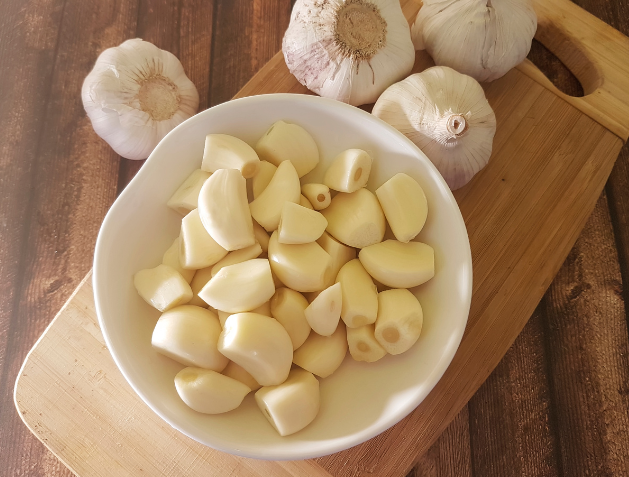
Garlic is a popular ingredient that is used in a lot of recipes. It is an underrated food item that can be used as a spice to season food or eaten as a vegetable. Medicinally, garlic has been used as an anti-bacterial tea to help fight throat infections. It has also been widely known to help reduce cholesterol and improve circulation.1 Garlic can help with general immunity by fighting infections in the body, as well as aid with circulation by providing oxygen and nutrient-rich blood to the cells that need support.
2) Onions
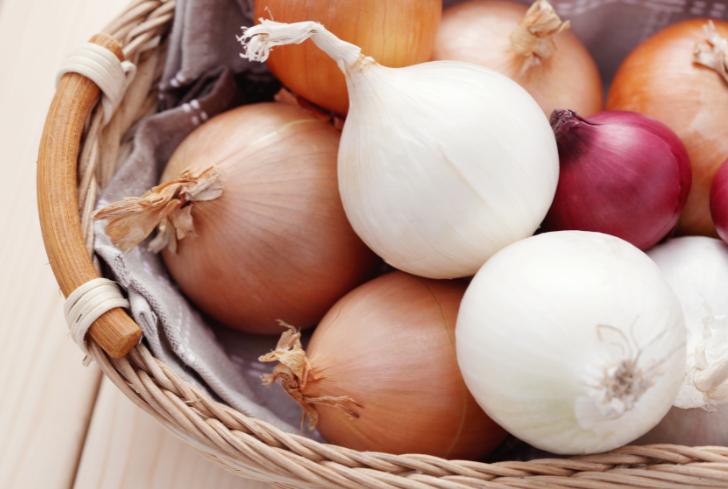
Onions, within the same family as garlic, also has its own benefits in helping support immunity. Onion is rich in quercetin, a powerful anti-oxidant that has anti-histamine benefits as well as supports the immune response. Quercetin also has some anti-viral capacities that can help fight potential colds and flu as well as reduce inflammation.2 Onions are definitely a staple that should be added to your recipes and can pack a punch in fighting potential pathogens.
3) Bell Peppers
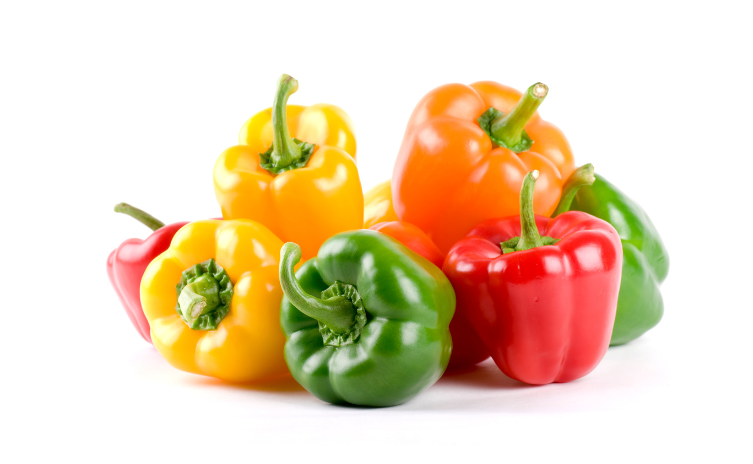
Oranges and citrus fruits have been the typical go-to for Vitamin C. Although citrus fruits do give a good deal of Vitamin C, bell peppers actually carry far more. Bell peppers provide about 306% of a daily recommended dose of Vitamin C according to the RDA per 100g.3 Bell peppers actually have over 3x the amount of vitamin C than oranges.4 Vitamin C is an essential vitamin that is a powerful anti-oxidant and can help prevent viral and bacterial infections. Not only is it necessary for immunity and stress, but it is vital for general health.
4) Dandelions
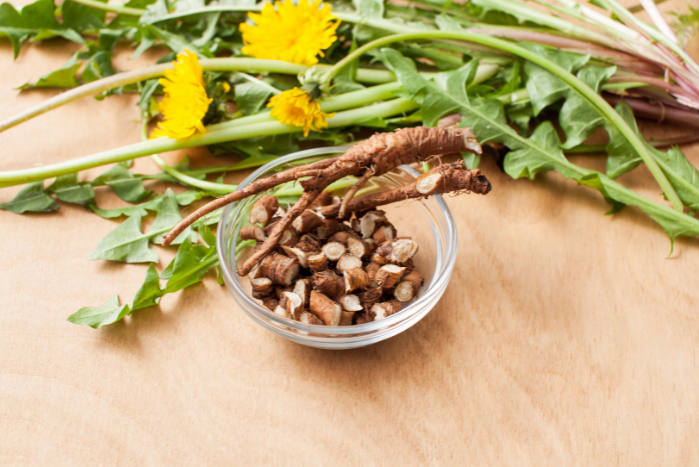
Dandelion is not just a weed that grows on your front lawn. It has actually been used in herbal medicine for several years as a digestive aid, body cleanser, and nutrient-dense herb. Typically, dandelion is consumed as a tea or in supplement form. Fresh dandelion can be consumed as a salad as well. When infused in meals, this bitter plant can actually stimulate bile and salvia to help break down food and improve digestion within the body. By enhancing absorption and reducing the body’s effort to digest meals, the focus can be put into supporting the body in fighting off foreign invaders in the body.
5) Lemons
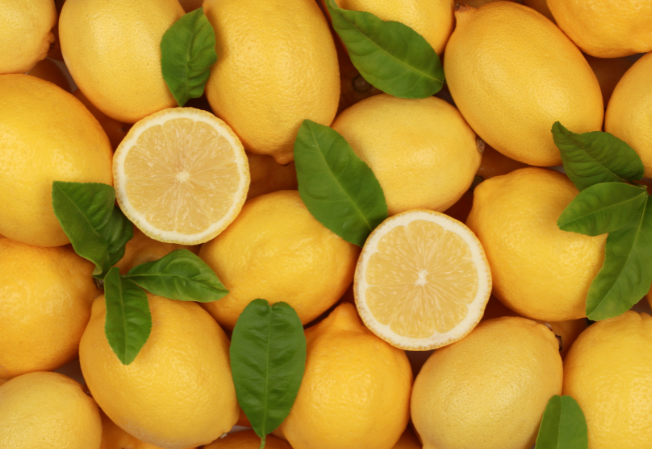
Lemon has a wide array of benefits. Lemon has been used in herbal medicine as an alkalizing medicine that reduces inflammation and provides anti-oxidants to the body. It also helps support the liver in its detoxification efforts by not only boosting the body’s metabolism but boost immune function by reducing stress within the body. Lemon juice can be consumed on its own or even added to foods and salads to help provide some digestive support. It is known for stimulating the salivary response, which is the first line of digestion.
Summary

Many underlying factors can reduce general immunity. When our body is running on very little nutrients or is continually being bombarded with stressors or improper digestion, our body’s defence mechanism does a switch. It switches from fighting outside invaders to focusing on trying to keep everything in check internally to stay alive. We all have had moments of reduced immunity, especially from situations outside of our control. But incorporating these foods into your daily regime can at least give the body a fighting chance to improve resistance to these pathogens. It is crucial to ensure proper care in what you eat. Avoid any food that you are sensitive to that may add to more burden on the body. It is essential to take it easy on yourself at this time as well.
Sources


